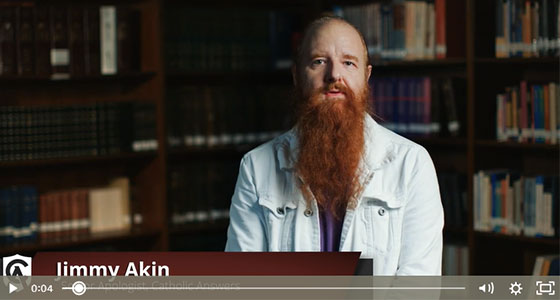Beginning Apologetics: Asking Questions
Asking questions is an important part of the apologetic process, and it is important for every apologist to devote conscious thought to the art of asking questions—what they are used for, how they should be phrased, etc.
The Socratic Method: Often apologists think of questions in connection with the Socratic method.
- In Plato’s dialogues, the figure of Socrates uses questions to challenge the beliefs of those around him. He asks questions designed to strip away false elements of these beliefs.
- The Socratic method can be very productive. It can prompt people to think more deeply about and reevaluate their positions.
- However, this needs to be done in a sensitive way that does not make people feel put on the spot. If they feel the questioner is hostile, they will become defensive and dig in their heels rather than seriously considering the issues he is raising. They will stop thinking about the merits of their position and will think instead of how to defend themselves against a hostile questioner.
- One way to avoid this is to phrase questions in an impersonal way and putting them in the third person. Instead of saying, “How would you answer me if I made this objection?” I would invite them to imagine a third party and ask, “How would you respond to a person who made this objection?” Thus, I am not asking them to answer me but to think about how they would answer an imaginary third party. This made the question seem less personal and thus less hostile.
The Diagnostic Method: Though often overlooked, this way of asking questions is far more important and useful than the Socratic method.
- Just as a doctor needs to ask his patients questions in order to be able to diagnose what is ailing them and determine how to help them, an apologist needs to ask “diagnostic” questions of the person he is working with. He needs to understand the person’s views before he can identify problems with them and seek to help.
- Upon initiating a discussion, an apologist should ask questions simply to understand. He should sincerely and respectfully ask the person both what he believes and why he believes it.
- The apologist should not make assumptions about what a person believes based on a knowledge of that person’s religious affiliation. The person may not agree with the views the apologist attributes to that affiliation.
- This is especially the case when dealing with someone coming from a Protestant background. Protestantism is an incredibly diverse movement, and it is always a mistake to assume a person holds “the” Protestant position on some issue. Even concepts like sola scriptura and sola fidei are understood in remarkably different ways among different Protestants. You cannot assume you know what a Protestant believes without asking him.
- Not only will asking questions give the apologist the information he needs to respond to a person’s views, it can also play an important role in getting him to reconsider aspects of his views. If the apologists comes across as friendly and sincerely interested in understanding what the person believes, the person will feel that he is being treated with respect and open-mindedness. This will help him consider what the apologist has to say in a respectful and open minded way in return.
Questions to Consider:
- What are the goals of the Socratic method of questioning?
- What are the goals of the diagnostic method of questioning?
- Is there such a thing as “the” Protestant position, even on core issues like sola scriptura and sola fidei?
Did you enjoy this lesson from the School of Apologetics Beginning Apologetics module? Enroll today CLICK HERE
Nov 24th 2020
Recent Posts
-
Medicine for the Soul
When people ask me why they need to go to see a priest in confession instead of going “directly to …Feb 19th 2026 -
What's Right, and What's Wrong—Salvation Hangs In the Balance
The Catholic Church teaches us what actions are gravely sinful and must be avoided so we do not for …Feb 17th 2026 -
Hasty Generalizations and True Scotsmen
No True Scotsman is a type of logical fallacy that involves making exceptions when a claim is contr …Feb 16th 2026










